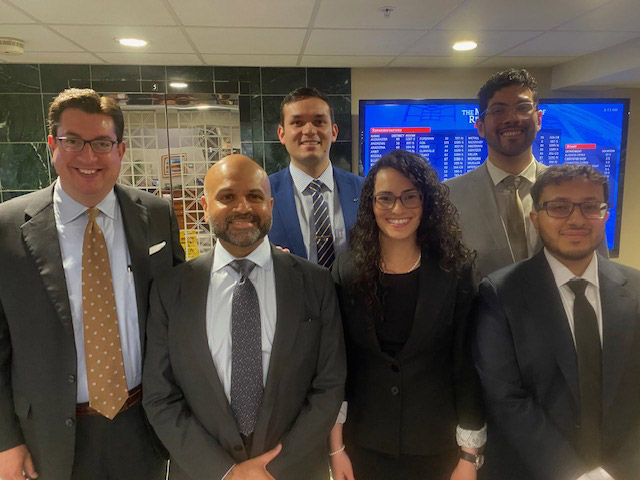
|
|||||||
|
 Construction Employers Must Follow 'ABC Test' For Contractors Under Senate Bill Construction Employers Must Follow 'ABC Test' For Contractors Under Senate BillWith new fines at stake, construction employers in Michigan will need to use a three-part "ABC Test" to determine whether their contractor is truly independent or a full-time employee under legislation moved Tuesday by the Senate Labor Committee. On a party-line, the Senate panel moved SB 6 and SB 7 on Tuesday by Sens. Kevin Hertel (D-St. Clair Shores) and Darrin Camilleri (D-Trenton). In the past, Democrats have attempted to require businesses to use the "ABC Test" when distinguishing full-time hires from independent contractors. To qualify as an independent contractor, the worker must be free from the payer's control and direction in connection with work performance, must do jobs outside the payer's usual course of business and must be "customarily engaged" in an occupation or business they established independently. But unlike previous efforts, SB 6 was substituted to limit the test to the construction industry, as it is defined by federal job codes. For other businesses, they will use a six-factor "Economic Reality Test" to figure out how economically dependent the worker is on the employer. Use of the "Economic Reality Test" was required by the U.S. Department of Labor starting in March 2024, during former President Joe Biden's administration. "I think there (are) a lot of people that benefit from the gig economy. I think we want to make sure those workers are actually protected when doing that work, as well," Hertel said to MIRS. "What we've been focused on here is the wage theft that occurs by people misclassifying workers, and it happens in the construction trades predominantly, where we see people being taken advantage of." The Senate Labor Committee heard testimony on SB 6 and SB 7 on May 1. During the meeting, Wendy Block, the Michigan Chamber of Commerce's vice president of business advocacy, explained that the state already follows the Economic Realities Test. The Economic Realities Test, according to Block, "is a totality-of-the-circumstances type of test," not restricted to independent contractors needing to meet all three criteria like the ABC test. Based on the Biden administration's write-up, the Economic Realities Test looks into whether the worker can independently choose assignments, ask for additional work from other clients and advertise services. It asks whether the employee is making entrepreneurial investments in themselves, and if their skills are dependent on training provided by the payer. But at the same time, Block describes the ABC Test as messy and complicated in California, where it became effective in January 2020 with more than 100 industries receiving exemptions. According to a Labor Market Matters study published this year, California's recent independent contractor statutes have been linked to a 6.43 percent drop in self-employment, as well as a 4.79 percent decrease in employment overall. "Michigan currently follows the Economic Realities Test. We do not believe that test is broken, and, in fact, that is the same test that the Biden administration put in place nationally in 2024," Block said. "So it becomes a question of, if that test was good enough at the federal level under a Democratic administration, why (do) we need to uproot Michigan's test?" Block believes in strong enforcement and building better public awareness around Michigan's wage and fringe benefit laws. However, she noted to the bills' proponents that "we probably would differ in terms of approach on how you handle those enforcements." Under SB 6, employers could face a five-year, $10,000 felony for the first found incident of not paying wages and fringe benefits worth $1,000 through $19,000 due to misclassification, or the employer might need to pay a fine equal to three times those wage and benefits spending on which is greater. If it happens more than once, the employer will be slapped with a minimum 10-year, $15,000 felony. "I think we can agree the state maybe needs to do a better job of trying to find these fly-by-night entities and to root out that problem," Block said. "But under the bills, you're talking about throwing business leaders in prison for upwards of 20 years, making that a felony, and it isn't even clear who would be guilty of these violations. Is it the payroll department? Is it the CEO? Is it the manager?" Overall, Camilleri said SB 6 and SB 7 essentially codifies federal regulations for most industries in the state. "I think there are some workers who are taken advantage of. I think there are some, (particularly) in the construction industry, who are not paying their fair share of taxes," Camilleri said. "If you are an employee who works 40 hours-plus per week, you're an employee. You're not an independent contractor, and being treated with more of a protective lens is better for that employee than what's currently taking place."
DCD OUT & ABOUT
Jake German and Senator Mat recently organized a Lansing day with the first class of medical residents from Honor Community Health's Residency Program. Senator Mat and Jake were instrumental in securing appropriations to make the program a reality and lawmakers were happy to meet some of the fine new doctors that will be taking care of the Pontiac community. 
Jake German was happy to attend the 50th birthday celebration for Rochester Hills Mayor Bryan Barnett with Ken Roberts, CEO of Genuine Contracting in Troy. 
DCD client, Ahmad Taylor, of the Pontiac Housing Commission was recently a guest on Chuck Moss's 'Eye on Oakland' television show where he discussed the recent Pontiac Pivot business roundtable and all of the great things the PHC is doing to attract business into Pontiac while working to create affordable housing for its residents. DCD IS A FULL-SERVICE, BI-PARTISAN, MULTI-CLIENT LOBBYING FIRM REMEMBER ALL OF DCD'S SERVICES: ARTICLES OF POLITICAL INTEREST:
Medicaid Battle Boils Over in DC; What It Means for Michigan As Lawmakers Prep Budget, Economists Warn Tariffs May Cost 13,000 Michigan Jobs Battle Intensifies Over Future of Roundup Weed Killer Should Michigan's Same Sex Marriage Ban Be Overturned? Michigan Lawmaker's Propose Selling Abandoned Maximum Security Prison Marijuana News, Updates, & Articles of Interest
We are here to help you with: municipal lobbying, license application writing and assistance, business plans, state required operations manuals and compliance, facility design, corporate structure, and design and branding. We are experts in both medical and recreational cannabis policy and have been in the space for over ten years. We welcome any opportunity to work with you in the future! ARTICLES OF CANNABIS INTEREST: Insiders Say Gov. Whitmer's Proposed 32% Tax Would Strangle Golden Goose Former EMU Football Player Turned Marijuana Entrepreneur Banned From Industry Despite 4/20 Celebrations, Michigan Marijuana Sales Were Down in April Regulators Could Soon Spy On Michigan Marijuana Businesses, Customers Doing Things Differently DCD is rebranding, and our bottom line is your bottom line. We are striving to create and foster strong relationships with clients and lawmakers, deliver results with strong ethics and class, but above all else, out-hustle and out-smart our competition every day to be the very best. We’re making chess moves while others are playing checkers. Everything we do is with you in mind, we’re doing things we’ve never done before and aggressively pursuing opportunities. The time is now. DCD has taken our firm to the next level and your involvement and investment paired with our knowledge and expertise is going to launch the great state of Michigan forward. |
|||||||
|
|||||||
Contact Us
Address
Phone
Copyright © Dunaskiss Consulting and Development Inc.

 State Revenues Down, Which Could Factor Into Budget Fight Ahead
State Revenues Down, Which Could Factor Into Budget Fight Ahead State Can't Bag Double Tax On Grocery Delivery Apps Under Repeat Senate Bill
State Can't Bag Double Tax On Grocery Delivery Apps Under Repeat Senate Bill

 THE DCD MARIJUANA TEAM: YOUR COMPETITIVE EDGE!
THE DCD MARIJUANA TEAM: YOUR COMPETITIVE EDGE!











